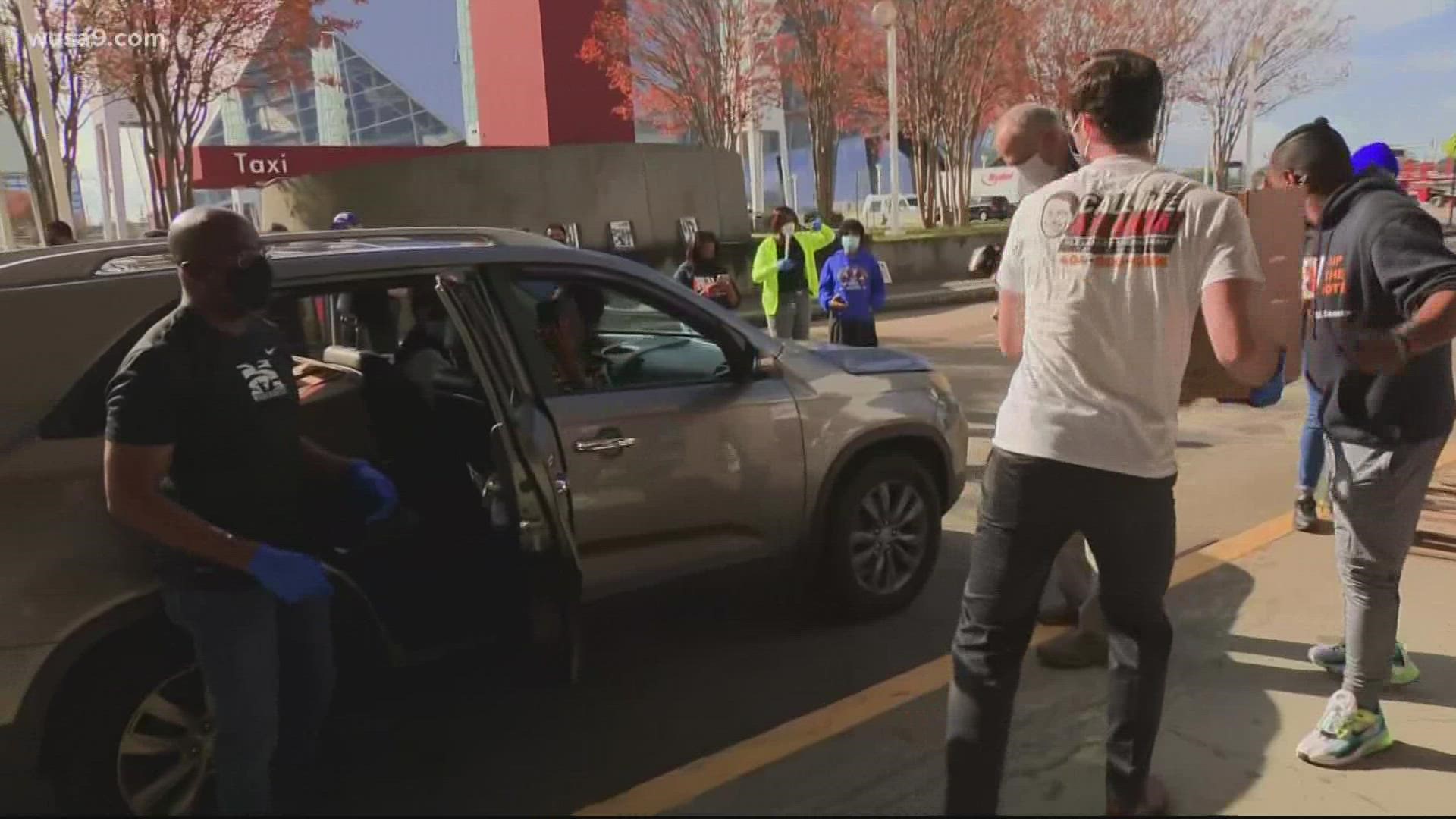WASHINGTON — The day after Cyber Monday brings an end to a series of shopping days and discounts. On Tuesday, people are focused on giving back. After the height of the pandemic, 2021 has been another challenging year for charitable organizations in D.C., Maryland and Virginia.
Founded in 2012 in New York, Giving Tuesday has become a global movement to help those in need, raising millions of dollars along the way.
D.C. organization The Catalogue for Philanthropy is a guide to giving and volunteering on a local level. The organization helped raise nearly $2 million for local charities during Giving Tuesday in 2020. Now, the Catalogue has launched a Giving Tuesday platform that allows those who wish to give to search for local, vetted charities in their area, featuring more than 400 nonprofits. Visit the website here for more information.
Since 2003, the Catalogue for Philanthropy has connected thousands of donors and volunteers with hundreds of community-based charities, raising over $45 million to support their work.
Several local organizations are also working to provide for Afghan refugees in the DMV. Organizations such as Homes Not Borders and Islamic Relief USA, are accepting donations during Giving Tuesday, and year-round.
RELATED: How you can help Afghan refugees
During this season of giving, it's important to remember there are people out there looking to take advantage.
The Better Business Bureau says people should be on alert for charity scams by phone and online. The BBB offers these tips to make sure you're giving to a legit organization.
- Research before donating. If a nonprofit organization isn’t completely transparent, it’s impossible to know for sure the money contributed will support a good cause. Ask for documentation on how much of the contribution will be used for program services, how much will go for fundraising, and management expenses.
- Don’t give in to intimidation tactics. If a caller makes causes discomfort through guilt or using an urgent plea to give right this minute, it’s best to simply hang up. Intimidation tactics are often used by scammers and are a red flag.
- Check the charity’s rating on Give.org. For a charity to receive BBB accreditation, it must meet 20 Standards of Accountability covering everything from governance to fundraising. If the organization does not appear on BBB’s website, that does not mean they are not a real charity, but it can be a warning that you need to do more investigation before you give.
- Give locally. Contact your local or state/provincial law enforcement agency and ask how you can support them. Most agencies have a non-profit “Friends of” type organization and will be happy to refer you to a more worthwhile option.

